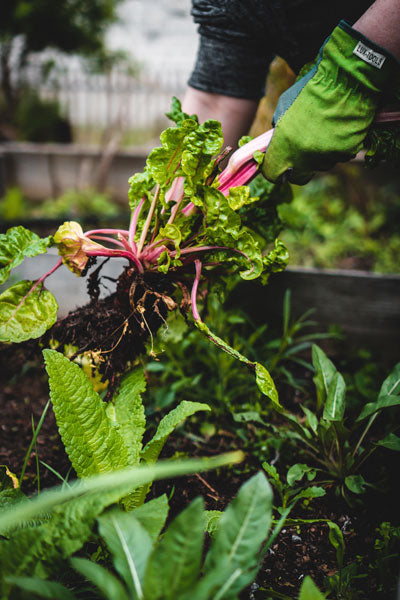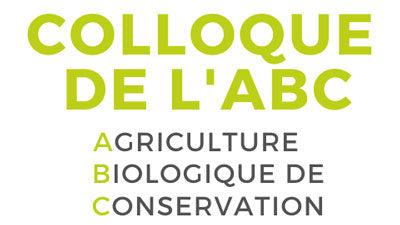Encore un choix d’initié il y a quelques années, le bio s’est démocratisé à grande vitesse ! Dans l’inconscient collectif, le bio est forcément meilleur pour la santé et pour la planète que l’agriculture conventionnelle. Vrai ou faux ?
C’est quoi une culture bio ?
Par rapport à l’agriculture dite conventionnelle, les fruits et légumes bio sont cultivés suivant une charte : le cahier des charges AB (Agriculture Biologique) interdit l’utilisation de pesticides, c’est-à-dire de « produit phytopharmaceutique », ou produit phytosanitaire de synthèse. Ces termes désignent toute substance utilisée pour lutter contre les organismes considérés comme nuisibles par les agriculteurs : champignons, insectes et mauvaises herbes. L’agriculture bio utilise bien des pesticides à condition qu’ils proviennent de substances naturelles ou substances dérivées de substances naturelles ou issus d’une liste de quelques exceptions tels que la chaux éteinte (de son vrai nom hydroxyde de calcium), l’huile de paraffine (pourtant issue du pétrole) ainsi que le soufre et des composés de cuivre, le sulfate de cuivre étant le pesticide le plus retrouvé sur les aliments biologiques, utilisé comme fongicide (anti-champignons). Des méthodes qui ne sont pas forcément inoffensives pour l’homme ou dépourvues d’effets néfastes pour l’environnement.
Naturel n’est pas parfait
A priori pourtant, on se dit que l’absence de pesticides est forcément meilleure pour la santé et pour la planète. Mais la charte n’est peut-être pas assez stricte car elle autorise par exemple les préparations au cuivre qui sont issues de la chimie minérale de synthèse comme la fameuse « bouillie bordelaise », un mélange de chaux et de sulfate de cuivre obtenu industriellement à la suite du décapage chimique du cuivre par l’acide sulfurique. Une bouillie autorisée mais loin d’être vertueuse. N’étant pas biodégradable, le cuivre a des effets négatifs sur les micro-organismes des sols où il s’accumule, des dommages collatéraux bien connus d’ailleurs soulevés par l’Inra (Institut National de la Recherche Agronomique) dans une expertise scientifique. Problème : dans la vigne bio comme pour les pommes de terre bio, il n’y a pas d’alternative. Ce contre-exemple permet en particulier de comprendre qu’il est difficile de faire une généralité sur le bio, car chaque culture possède des spécificités.
Les failles du bio
Les produits bio répondent donc à un cahier des charges qui cible les produits chimiques, mais qui ignore des points essentiels : on peut ainsi cultiver du bio tout en ayant des pratiques agressives pour l’environnement et les sols. En effet, l’agriculture “conventionnelle” a tout autant recours au labour que le Bio alors que c’est est une des pratiques les plus perturbantes pour les sols et la biodiversité. En effet, il faut considérer toutes caractéristiques d’une culture pour évaluer ses impacts et pouvoir comparer bio et conventionnel. En l’occurrence, utiliser quelques grammes de glyphosate mais préserver les sols de pratiques qui détruisent leur équilibre en les soulevant est sans doute moins néfaste que de se passer d’un peu de produit chimique mais détruire l’écosystème de la terre (bactéries, vers de terre et champignons qui en font la richesse). Par ailleurs, l’agriculture bio a un rendement plus faible. C’est-à-dire que pour la même production, l’agriculture bio a besoin de plus de terrain, une surface qui va générer plus d’émissions de gaz à effet de serre au cours de la production.
Le bio mondialisé = bio néfaste

Autre critère à prendre en compte : l’endroit où le produit bio est cultivé par rapport à celui où il sera consommé. S’ils viennent de l’autre bout du monde, (et d’autant plus s’ils sont sur-emballés dans du plastique), les produits bio auront un bilan écologique très mauvais par rapport à des légumes cultivés en conventionnel mais consommés localement. En effet, les dommages écologiques du transport et de ses émissions de gaz à effet de serre, la pétrochimie utilisée pour les emballages, ne seront jamais compensés par l’absence de pesticides de l’agriculture bio.
Par ailleurs, le label et la charte bio ne garantissent pas le respect des travailleurs sur les exploitations. Des ouvriers agricoles d’exploitations bio exercent dans des conditions déplorables, y compris en Europe. Par exemple, poivrons, tomates et autres légumes d’été que l’on trouve encore en fin de saison sur nos étals, viennent majoritairement d’Espagne et de sa « mer de plastique » à Almeria. Cette zone qui produit du bio pour toute l’Europe est largement cultivée et récoltée par des travailleurs migrants saisonniers, qui vivent dans des conditions proche de l’esclavage moderne. Le label Bio est dans ce cas un argument marketing très loin des attentes des consommateurs.
Fruits et légumes bio, meilleurs pour la santé ?

Et en ce qui concerne la teneur en nutriments souvent vantée par les producteurs bio, elle ne dépend pas de l’utilisation ou non des pesticides naturels ou de synthèse mais de la variété de la plante, de son exposition ou non au soleil, de la pollution de l’air et de la richesse ou de la pauvreté du sol. Sans oublier les engrais azotés utilisés et du moment de la cueillette. Un fruit cultivé en bio mais qui finit de mûrir dans un container ne sera pas aussi riche en minéraux, vitamines et autres qu’un fruit qui est resté murir sur son arbre en profitant des bienfaits du soleil. Il est donc très délicat, pour ne pas dire impossible, de se prononcer et de trancher sur ce sujet. Encore une fois, une exploitation familiale bio, locale ou nationale, sera forcément un gage de meilleure qualité par rapport à des fruits ou légumes issus d’une culture bio industrialisée et loin de chez nous.
Le bio, meilleur pour la santé des agriculteurs
Aujourd’hui, si l’on sait qu’il vaut mieux éviter de consommer des pesticides, leurs effets sur la santé des consommateurs fait encore débat. Ce qui n’est pas le cas pour les agriculteurs : l’exposition professionnelle soutenue et répétée aux pesticides est un facteur de risque avéré pour la maladie de Parkinson, certains cancers du sang et le cancer de la prostate. De quoi y laisser sa santé… D’autant que la France n’atteint pas l’objectif du plan Ecophyto visant à réduire l’usage des produits phytosanitaires de 50% d’ici à 2025, un objectif déjà reporté plusieurs fois depuis sa création en 2008. Incroyable mais vrai : la France a vu les ventes de produits phytosanitaires augmenter significativement en 2018, avec un bond de +10% pour le fameux glyphosate, extrêmement toxique mais extrêmement efficace. L’arrêt de l’utilisation de cette substance rendrait le travail des agriculteurs peu rentable. Si certains agriculteurs ont fait des stocks en prévision d’interdictions futures, ils ont aussi acheté en abondance des produits moins nocifs mais qui devront être utilisés en plus grande quantité pour obtenir les mêmes résultats.
Les avantages du bio
Malgré les imperfections de la charte, cultiver en bio, pour l’agriculteur, c’est redécouvrir le métier de paysan, renouer avec la nature, l’observer pour intervenir au bon moment. Mis à part le Bio mondialisé à grande échelle, les agriculteurs bio adhèrent à une philosophie vertueuse globale même si elle n’est pas inscrite au cahier des charges. A savoir : respecter les écosystèmes, produire une alimentation saine, alimenter les circuits-courts, optimiser les consommations en énergie et en eau, réintégrer la biodiversité. C’est un choix positif aussi pour la collectivité car le bio pollue beaucoup moins, ce qui permet de réduire les coûts des traitements de dépollution de l’eau et des sols. L’agriculture bio participe à la réduction de ces dépenses pour la société. Voilà pourquoi le bio est nécessaire, et souvent meilleur, même s’il n’est pas parfait.
Au-delà du bio, l’agriculture de conservation
La charte bio est donc perfectible avec une troisième voie, entre l’agriculture conventionnelle et l’agriculture bio : l’agriculture de conservation. Non bio, cette agriculture utilise un ensemble de pratiques vertueuses pour les écosystèmes : ne pas labourer les sols, éviter d’avoir des sols « nus » en y semant un « couvert végétal », c’est-à-dire un mélange de plantes qui lui évite de se dégrader et s’appauvrir en perdant sa précieuse matière organique. Or pour pratiquer l’agriculture de conservation, il est nécessaire d’avoir un petit peu recours au glyphosate, pour détruire le « couvert végétal » entre deux semences et éviter qu’il ne repousse et se mélange aux cultures. Ce pesticide est si puissant qu’une quantité absolument minime suffit (les meilleurs agriculteurs arrivent à n’utiliser qu’1 à 2L/hectares !) pour gérer le problème du couvert. Quant aux agriculteurs bio qui veulent eux-aussi préserver les sols mais ne peuvent utiliser de pesticides, pratiquent le désherbage mécanique pour enlever le couvert végétal. Une technique fastidieuse et complexe qui doit s’ajouter aux pratiques du bio. Aujourd’hui, cette agriculture de conservation permet d’arrêter d’épuiser les sols, cultivés en bio ou non.
Le futur du bio
Ainsi, pour vraiment bien faire, préserver sa santé ET l’environnement des dégâts de l’agriculture intensive et des pesticides, l’agriculture devrait donc à la fois se convertir au bio, bannir toute molécule chimique de synthèse mais aussi appliquer toutes les bonnes pratiques de conservation des sols. Autant de pratiques qui permettraient de pratiquer une agriculture vraiment vertueuse, du « vrai bio », et non du bio mondialisé ou low cost. La vente en circuits courts devrait aussi se démocratiser : sans intermédiaire, l’agriculteur est plus justement rémunéré.

Ce sont toutes ces pratiques qui construiront l’agriculture régénératrice du futur, que certains appellent déjà l’ABC (Agriculture Biologique de Conservation). Cette nouvelle agriculture repose pour l’instant sur la motivation et le bon vouloir d’agriculteurs nouvelle génération véritablement écologistes.
Si l’agriculture bio fut une étape importante, elle est dépassée aujourd’hui par la crise écologique qui exige des mesures plus fortes, et un véritable accompagnement des agriculteurs par les pouvoirs publics. A votre échelle de consommateur, vous pouvez soutenir cette transition en réduisant les achats en supermarchés au profit de marchés de producteurs locaux, et en choisissant des aliments sans emballage, produits en France voir idéalement dans votre région, et -de fait – consommer les produits frais et de saison. A l’heure actuelle, il n’existe aucune forme d’agriculture productiviste qui permette aux agriculteurs de bien vivre tout en préservant l’environnement. Il faudrait donc revoir tout le système agricole !










